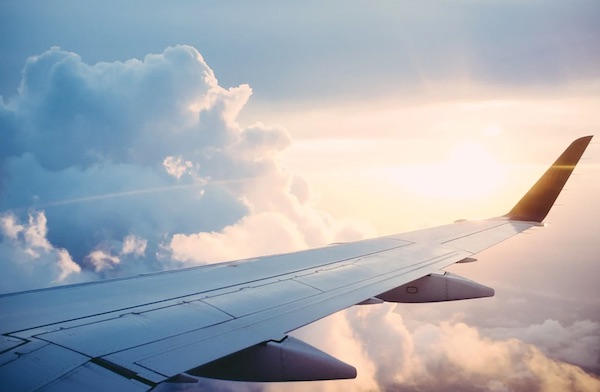Carbajal introduces bipartisan ‘Fly Safe and Healthy’ act

–Today, Congressman Carbajal led a bipartisan group of lawmakers in introducing the Fly Safe and Healthy Act of 2020. This legislation would help prevent the spread of COVID-19 among air travelers by creating a pilot program to require temperature checks at TSA screenings. A Senate companion bill was introduced by Senator Maria Cantwell (D-WA) and Senator Rick Scott (R-FL) in September.
“My own experience with COVID-19 underscores how easily this virus can spread, even when we take precautions. As our economy reopens, and as more Americans return to air travel, it is crucial to our public health that we work to make flying as safe as possible for the general public,” said Rep. Carbajal. “Temperature checks at airports are one way we can help curb the spread of COVID-19 at a time when cases are on the rise, and the pilot program puts travelers first by including built-in protections for consumers.”
“As we work to get our nation back on its feet, we must continue to identify ways to help slow the spread of COVID-19,” said Rep. Norman. “Air travel poses unique challenges on this front, and it’s important to study and understand how TSA checkpoints might play a role in our fight against this and future pandemics. I want to thank Congressmen Carbajal, Budd, and Larson for their insight and co-sponsorship of this important bill.”
“Making sure air travelers are healthy enough to fly is a common-sense way to boost passenger confidence and jumpstart economic activity, said Rep. Budd. “That’s how we can stop the spread of the virus and continue a great American comeback. Big thanks to Reps. Carbajal, Norman, and Larson for their sponsorship of this bill.”
Background on the Fly Safe and Healthy Act of 2020
- Requires the Transportation Security Administration to establish a pilot program to test temperature screening technology within 30 days. The 120-day pilot would be conducted at TSA checkpoints.
The program includes built-in protections for consumers:
- Requires the TSA Administrator to protect travelers’ personal and medical privacy, exempt individuals who may have a fever unrelated to COVID-19, and accommodate individuals with disabilities or who observe certain religious practices.
- The administrator would have the flexibility to test various technologies and would be required to ensure Transportation Security Officers are properly trained on how to use the technology and follow program procedures.
- No later than 90 days after the pilot program concludes, TSA would be required to issue a policy to deploy the program more broadly at airports throughout the United States until the end of the COVID-19 public health emergency.
- TSA would be permitted to partner with universities or academic institutions, national laboratories, public health authorities, or private entities to develop, evaluate, or improve technology for the purpose of detecting fevers or for conducting secondary screenings.
- The Secretary of Transportation would be required to issue a rule requiring airlines to notify passengers that they will be subject to temperature screening and to encourage passengers to not come to the airport if they have a fever.
The text of the bill is available here.
Answers to frequently asked questions about the bill are available here.











